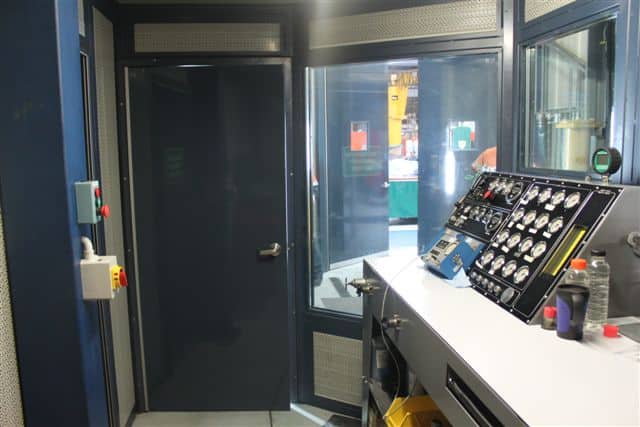Call 1300 799 969 | Contact Us


Home » Industrial noise control for the Australian water and power generation industries
Australia’s water and power generation industries are instrumental in powering the nation and providing clean water to communities. This makes operational efficiency and environmental impact mitigation top priorities for these industries. Yet one often overlooked aspect of achieving these goals is effectively managing noise emissions through industrial noise control.
In this article, the Flexshield team will explore the significance of industrial noise control in the water and power generation sectors, delve into specific noise regulations in Australia, and outline how implementing noise control measures can positively impact your bottom line.
The importance of industrial noise control
Industrial operations generate noise that can have adverse effects on employees, nearby communities, and the environment. Excessive noise can lead to hearing damage, decreased productivity, and increased stress levels among workers. Communities situated near power plants or water treatment facilities may also experience noise pollution that affects their quality of life. What’s more, excessive noise emissions can disturb wildlife and disrupt ecosystems.
By implementing effective industrial noise control strategies, businesses in the water and power generation industries can address these concerns and reap substantial benefits.
What specific noise regulations apply in Australia?
Australia has established stringent regulations for industrial noise emissions to safeguard workers, communities, and the environment. Some key noise regulations applicable to the water and power generation industries include:
Environment Protection (Noise) Policy 2007
This policy sets noise limits for different land uses, and provides guidelines for assessing industrial noise impacts. It establishes acceptable noise levels to protect both sensitive areas and the general population.
Occupational Health and Safety regulations
These regulations specify requirements for noise exposure limits in the workplace to protect employees’ hearing. They outline permissible noise levels and provide guidelines for implementing control measures to reduce workplace noise.
State-specific noise regulations
Each Australian state has its own noise emissions regulations. For example, in New South Wales, the Protection of the Environment Operations (Noise Control) Regulation 2017 provides guidelines for noise control measures and enforcement procedures.
The benefits of effective industrial noise control
1) Better regulatory compliance
Implementing noise control measures ensures compliance with noise regulations, helping industrial businesses avoid costly penalties and legal issues. By understanding and adhering to the specific noise limits outlined in the regulations, businesses can maintain a positive relationship with regulatory bodies.
2) Enhanced productivity
Reducing noise levels in the workplace can lead to increased productivity and improved employee satisfaction. Excessive noise can cause distractions, impair concentration, and hinder effective communication. By implementing noise control solutions, businesses can create a quieter work environment that promotes efficiency and focus.
3) Improved employee health and safety
Protecting employees’ hearing health is crucial. By reducing noise exposure through proper noise control measures, businesses can prevent occupational hearing loss and related health issues. In turn, this lowers healthcare costs, reduces absenteeism, and fosters a safer work environment.
4) Better community relations
Managing noise emissions helps businesses maintain positive relationships with nearby communities. Reduced noise pollution enhances the quality of life for residents and minimises the risk of complaints or disputes. Building goodwill within the community can contribute to a positive public image and support ongoing operations.
5) Enhanced environmental stewardship
Effective industrial noise control measures contribute to environmental sustainability. By minimising noise pollution, businesses can mitigate the impact on wildlife, preserve ecosystems, and demonstrate their commitment to environmental stewardship. This aligns with the increasing societal demand for sustainable practices.
Get advice on industrial noise control for your facility.
Industrial noise control is a crucial consideration for Australia’s water and power generation industries. By adhering to specific noise regulations and implementing effective noise control measures, businesses can experience various benefits, including regulatory compliance, enhanced productivity, improved employee health and safety, positive community relations, and better environmental stewardship.
Embracing noise control as an integral part of operations can boost the bottom line and contribute to the sustainable growth and success of businesses in these industries. By investing in noise control solutions, your company can optimise operations, create healthier and more productive work environments, and foster positive relationships with your stakeholders – all while minimising your environmental footprint.
For expert advice on the right noise control solutions for your facility, please contact Flexshield at 1300 799 969.